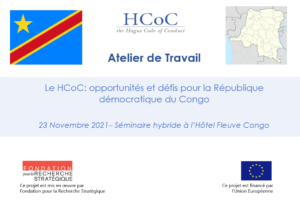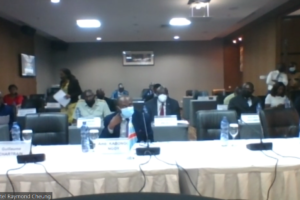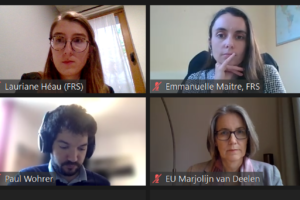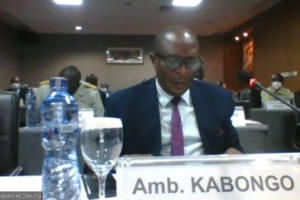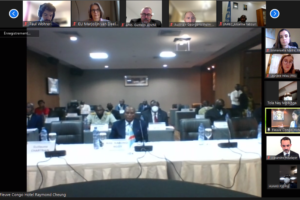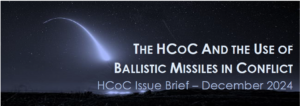HCoC: Opportunities and challenges for the Democratic Republic of Congo
23 November 2021
Hybrid
On 23 November 2021, FRS organised an expert mission with representatives from the government of the Democratic Republic of Congo (DRC) to discuss the issue of ballistic missile proliferation and the role of the Hague Code of Conduct (HCoC). This took the form of a hybrid event with representatives of RDC gathering in Kinshasa and experts from FRS, the EU, the Argentinian HCoC Chair, Austria and UNREC presenting virtually.
AGENDA
INTRODUCTION
- Alexandre HOUDAYER, Secretary General, FRS
- Mélanie RÉGIMBAL, Director, United Nations Regional Centre for Peace, Disarmament and Development in Latin America (UNLIREC)
- Marjolijn VAN DEELEN, Special Envoy for Non-Proliferation and Disarmament, European External Action Service, European Union
I/ PRESENTATION & CONTRIBUTION of HCoC TO INTERNATIONAL SECURITY
MODERATOR:
- Alexandre HOUDAYER, Secretary General, FRS
PANELLISTS:
- Amb. Gustavo AINCHIL, Ambassador to Austria and Permanent Representative of Argentina to the International Organizations in Vienna
-
George Wilhelm GALLHOFER, Representative of the HCoC Executive Secretariat at the Austrian Federal Ministry for European and International Affairs (Austria)
- Emmanuelle MAITRE, Research Fellow, FRS
II/ INTEGRATING HCoC INTO REGIONAL NON-PROLIFERATION & DISARMAMENT PRIORITIES
MODERATOR:
- Emmanuelle MAITRE, Research Fellow, FRS
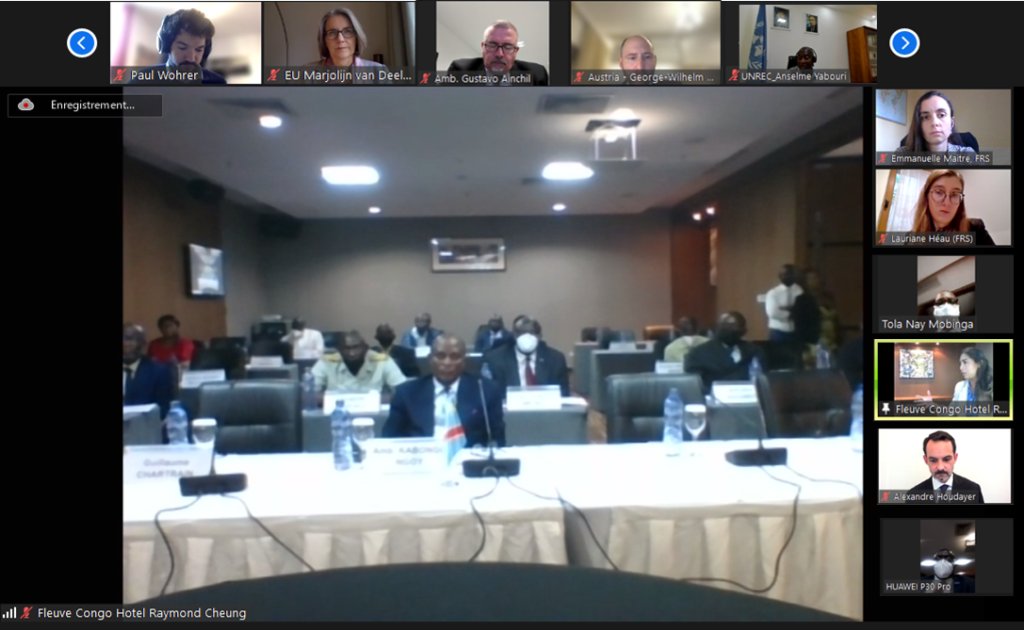
PANELLISTS:
- Lauriane HÉAU, European Projects Manager, FRS
- Erly MUNOZ HERNANDEZ, Regional Coordinator for Gender and Small Arms Projects in Africa, UNREC
- Paul WOHRER, Research Fellow, FRS
CONCLUSION
- Amb. Joska KABONGO NGOY, Secretary General, Ministry of Foreign Affairs, Democratic Republic of Congo
- Alexandre HOUDAYER, Secretary General, FRS
Summary of the workshop
This meeting aimed to shed light on the nature of the dynamics related to ballistic missile issues and its strategic developments, while considering the national and regional context surrounding the Democratic Republic of Congo (DRC). After recalling the objectives and functioning of the HCoC, the first session focused on the Code’s contribution to international security. The need to combat missile proliferation and the various existing instruments to do so were highlighted – from the MTCR to UN Security Council Resolutions (UNSCR) and politically-binding transparency and confidence-building measures such as the Code.
The second session served to integrate the HCoC into the non-proliferation and disarmament priorities of the region. Given that SALW proliferation is a more immediate challenge for DRC and its neighbours, the linkages between the fight against the proliferation of WMD and its delivery vehicles and the fight against the proliferation of conventional weapons – especially SALW were highlighted. Participants also discussed the implementation of UNSCR 1540, which aims to prevent non-state actors from acquiring WMD capabilities.
The meeting ended with a presentation on current international and regional space developments, and the role the HCoC can play in providing a framework for such developments. New actors are emerging is what is often called New Space, alongside a multiplication of satellites in orbit and the development of smaller launchers. As space is becoming accessible to an increasing number of states and actors, it is all the more important to preserve a peaceful environment – to which the transparency and confidence-building measures present in the HCoC can serve.
